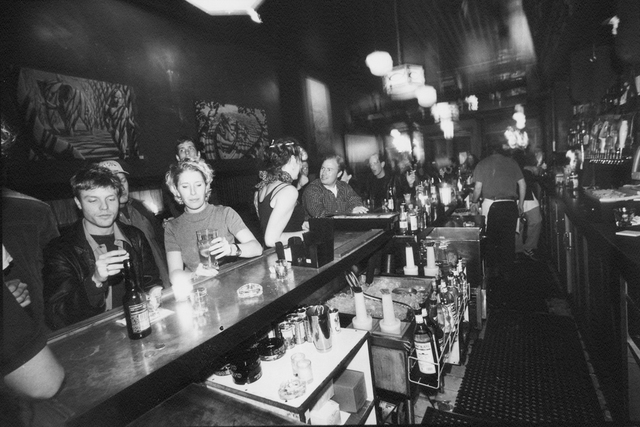“They were critics of everything,” says Alfred Kazin of New York intellectuals in Arguing the World. “They were critics with a capital C.” A documentary of New York Jewish intellectual life over the last century, Joseph Dorman’s film follows four influential thinkers through their ideological byways and minefields. The result is an inspiring testament to the way self-inquiry can be transformed into political inquiry.
Arguing the World
directed by Joseph Dorman
plays August 3-5 at the Varsity
The four grew up in the Bronx, Harlem, the Lower East Side, and Brooklyn, and refined their political beliefs in the crucible of 1930s City College. Irving Kristol, a neoconservative political essayist; Irving Howe, a leading voice of the left and the founder of Dissent; sociologist Nathan Glazer; and social theorist Daniel Bell appear in the film as talking, talking, talking heads—each at the end of his life, each as passionate as ever.
As Bell remembers it, “City College in the 1930s was like a school for political disputation.” The four, who’d grown up in the shadow of Eugene Debs and in the New York of Norman Thomas and Clifford Odets, were already committed Marxists when they arrived at school. Like the other students at City College, they found their clique in the lunchroom alcoves, each of which had its own identity. Some were home to universally recognizable types: jocks, grinds, Catholics. Others were more specific to time and place—anti-Stalinist left in Alcove One, Stalinist left in Alcove Two. . . .
The film, which quietly and inexorably maintains a Marxist position, suggests that the four men would be forever defined by their lunch sessions in Alcove One, even though they later fanned out to disparate corners of political and intellectual life. We watch as the four travel from Alcove One to the corridors of the Partisan Review. Here we take in one of the finest things about the film—the way it elucidates the fractures of the prewar left, and gives us a sense of the extreme degree of personal commitment in those battles. As Kristol says, the most profound question one could ask of oneself at the time was this: “Was there something in Marxism and Leninism that led to Stalinism?”
Howe remained a committed leftist to his death, which occurred during the making of the film. Kristol went on to become an architect of the neoconservative movement. Glazer and Bell struggled all their lives to find a tenable liberalism—one that could overcome the failures of the New Deal and the Great Society. But the ideologies of all four were driven by their search for social justice. As kids, they were street-corner speakers and rabble-rousers. As old men, they still want to sway the crowd.





